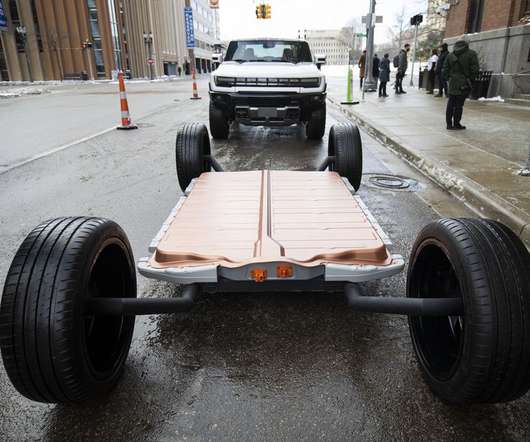U Alberta team develops hybrid sodium-ion capacitor; intermediate in energy & power between ultracaps and batteries
Green Car Congress
DECEMBER 15, 2014
A team led by researchers from the University of Alberta (Canada) Scientists has developed a hybrid sodium-ion capacitor (NIC) using active materials in both the anode and the cathode derived entirely from peanut shells—a green and highly economical waste globally generated at more than 6 million tons per year.





















Let's personalize your content